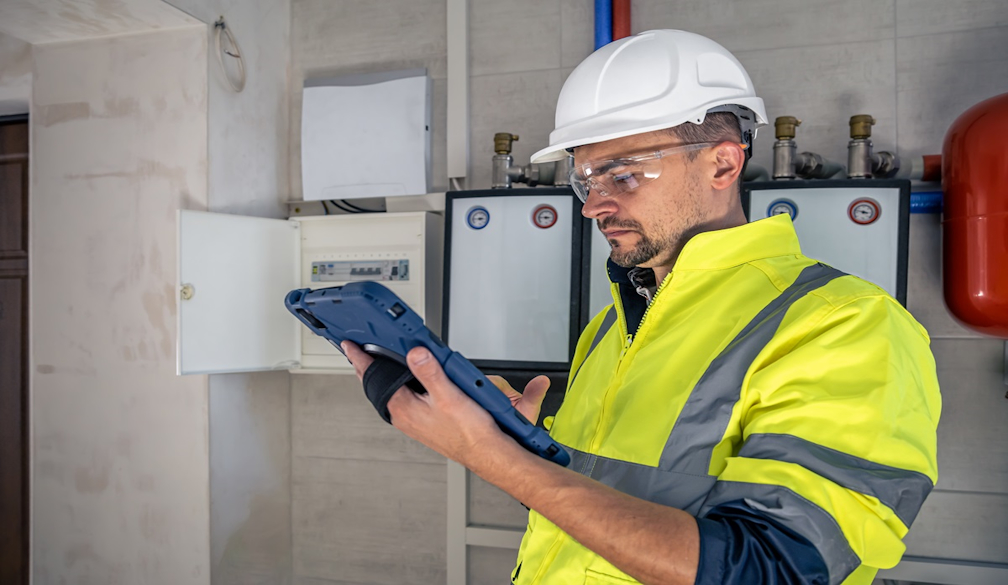Gas and Electric Safety Checks: Essential for New Homeowners
- Written by The Bulletin

So, you’ve just bought a new house. Congratulations! It’s an exciting time filled with plans for furniture, decorations, and maybe even a backyard barbecue.
But after you’re done with all of that, make sure you don’t forget about gas and electrical safety checks. You might be thinking, Do I really need that? The short answer? Absolutely, yes. Your pre-purchase building inspection is not the same as having a safety check undertaken by a qualified gasfitter or eletrician.
Gas and electrical safety checks might not sound as thrilling as picking out curtains or deciding where to put the couch. But honestly, this is one area you can’t afford to ignore. In fact, these checks could save your home, your health, and even your life.
A gas safety check involves a licensed gas fitter inspecting your gas appliances, fittings, and connections to ensure they’re working properly and meet Australian safety standards. They’ll look for leaks, damage, or anything that could pose a risk.
Is It a Legal Requirement?
In Australia, it’s not legally required for the homeowners themselves to conduct gas safety checks when they buy a house unless they’re renting the property out. For landlords, though, the laws are a bit different, depending on where you live.
For gas, the law says all installations and maintenance need to be done by a licensed professional. In places like Victoria, the Gas Safety Act 1997 specifies that appliances such as gas heaters and stoves must meet specific safety standards. In Queensland, they’re even tougher, with regulations requiring all appliances to pass strict safety tests.
As for electricity, the AS/NZS 3000:2018 Wiring Rules are the gold standard. Every home must have safety switches installed, and any electrical work needs to come with a compliance certificate. Some states, like NSW, even require sellers to provide proof that electrical work in the past five years was up to code.
Nonetheless, even if it’s not the law for your home, it’s strongly advised to get a gas safety check done when you move in, especially if the house is older or you’re unsure of the appliance’s history.
What Happens During a Gas Safety Check?
When a gas safety check is done, a licensed gas fitter will come in and inspect everything. They’ll make sure your appliances are installed properly, look for any leaks, and test for carbon monoxide.
If your home runs on gas for cooking, heating, or hot water, skimping out on a gas safety check is certainly not in your best interest.
Carbon monoxide is a silent killer. It’s colourless, odourless, and downright dangerous if it builds up in your home. Gas heaters are the usual suspects when it comes to carbon monoxide leaks, so getting them checked regularly is something you should make a habit.
The fitter will also check the ventilation around your gas appliances. Good airflow is super important to stop dangerous gases from sticking around. They’ll also inspect things like the flues and pipes to ensure that there are no damage or blockages.
How Often Should You Get a Safety Check Done?
Even if your home is brand new, don’t assume everything’s perfect. Builders can make mistakes, and sometimes systems don’t get the thorough testing they need before you move in. So, getting a check as soon as you settle in is a smart move.
After that, it’s a good idea to have a gas and electrical safety check every two years and an electrical check every three to five years. If your home is older or you’ve done any renovations, you might want to bump that up.
How to Book a Safety Check in Australia
This part’s easy. All you need to do is find a licensed gas fitter or electrician. Don’t just go with the cheapest option, or the first one that you come across. Look for someone with good reviews and proper credentials.
In Victoria, for instance, you can check if a professional is registered with Energy Safe Victoria. Most states have similar databases with a list of accredited professionals.
Once the work’s done, you’ll then be awarded a Certificate of Compliance. This certificate will serve as proof that your home meets Australian safety standards. It would come in really handy if you ever sell your property or need to file an insurance claim.
Conclusion
Your home is where you should feel safest, and gas and electrical safety checks are key to making that happen. You should not let the excitement of moving in overshadow these essential steps.
Also, if you are a landlord or property manager in Melbourne, make sure to hire an all-in-one gas and electrical safety compliance team to rent out your space with confidence. If you’re unsure where to start, reach out to licensed professionals in your area. It’s basically a small investment for something as priceless as the safety of your current and potential tenants.
So, don’t put it off. Make a call, book that check and enjoy your new home knowing it’s as safe as it is beautiful.













